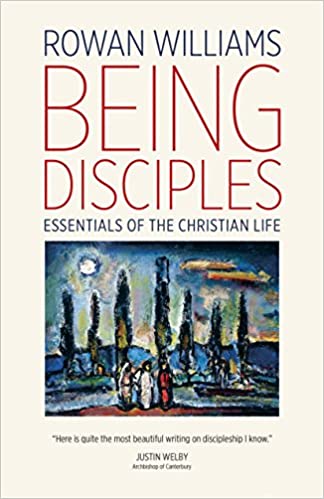This week we will be discussing chapter 3 – Forgiveness – of Archbishop Rowan Williams’s book Being Disciples – Essentials of the Christian Life. Last fall we looked at forgiveness in both Soren Kierkegaard’s Works of Love and in the Sermon on the Mount (Matt. 6:14-15, 5:38-48). In his discussion of forgiveness, Dr. Williams links forgiveness with bread – Give us this day our daily bread; and forgive us our trespasses, as we also have forgiven our debtors. (Matt 6:11-12).
Dr. Williams points out that the asking for both bread and forgiveness exposes the vulnerabilities of our humanity. The request for bread reminds us that without sustenance we die, and therefore we hunger for nourishment. Likewise, the request for forgiveness reminds us that we are separated from God, and that this separation brings death. Therefore, we hunger for restoration and reconciliation. In both instances, our request for nourishment or for reconciliation is made to God in recognition that these are gifts from God for us the people of God. Dr. Williams reminds us that we cannot ask God to give us that which we refuse to give to others. We cannot ask God for bread if we are not willing to share our bread with others, and we cannot ask God for forgiveness if we cannot give forgiveness to others.
As you read through Dr. Williams’ discussion of bread and forgiveness, also think through how this connection finds its fulfillment in the Eucharist. Forgiveness requires sacrifice. To forgive we must sacrifice our privilege of being in the right, our position of being the offended victim, and our right of retribution. Forgiveness requires not that we simply move on but that we restore what was lost or destroyed. Within the Eucharistic Rite, we participate in God’s sacrificial forgiveness of us. When we take of his body, we take into ourselves God’s own sacrifice of his justice and retribution in order to work reconciliation and restoration with the whole of creation. For while we were yet sinners, Christ died for us (Romans 5:8), and while we nailed him to the tree, Christ forgave us (Luke 23:34).
Let all bitterness and wrath and anger and clamor and slander be put away from you, with all malice, and be kind to one another, tenderhearted, forgiving one another, as God in Christ forgave you. Ephesians 4:31-32

